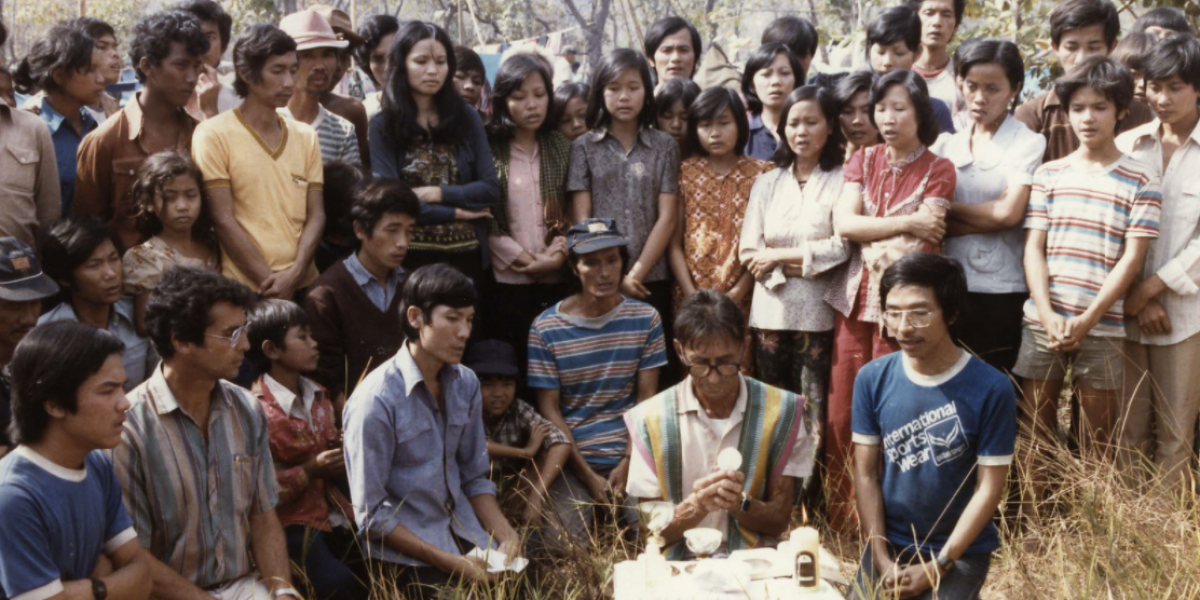The Eucharist: from Bread of Refugees
28 March 2021|Thomas Doran

In today’s Gospel, we encounter the very “source and summit” of Christian life: the Eucharist. The Greek Eucharisteo means “to express gratitude”. When we celebrate the Eucharist, we thank God for the gift of being alive. We put aside what breaks us apart and instead break bread together. It does not matter if you are rich or poor, male or female, conservative or liberal, immigrant or citizen, of color or white, LGBTQ+ or straight, cleric or lay. In Holy Communion, all borders are crossed. Every human is made equal, dignified, and unified to Jesus and one another. As one big family, we rise up to join all of Creation’s resounding praise of the Creator.
In today’s Gospel, Jesus celebrates the Last Supper, not unlike Fr. Pierre Ceyrac SJ at a Thai-Cambodian refugee camp above (1986). In the Upper Room, Jesus transubstantiates unleavened, as opposed to leavened, bread. This is significant because unleavened bread is the bread of refugees. Jesus and the disciples were celebrating the Passover, a Jewish holiday which commemorates the Hebrew people’s liberation from Egypt, the place where the infant Jesus was once a refugee. As the Hebrews hastily fled their homes in the great migration known as the Exodus, they did not have time to let the bread dough rise, leaving it unleavened. This unleavened refugee bread from 3000 years is the bread transubstantiated into the Eucharist at every mass today. As Catholics, we carry this unleavened Bread of Life on our spiritual migration back to our homeland in heaven.
For prayer today, perhaps you can ponder the following reflection questions. What does the Eucharist mean to you? What is it like to receive Him? What does it mean to ingest Him, to eat Him? How do you experience God in the Sacrament? What does it mean that the Holy Eucharist is transubstantiated from the bread of refugees? In what ways can you grow in gratitude and communion with others?
Thomas Doran is a Jesuit novice from Omaha, Nebraska. He is working with JRS/USA as a part of Jesuit formation called “Long Experiment.” Thomas will share weekly reflections during Lent. Click here to see his reflection rom last week.


